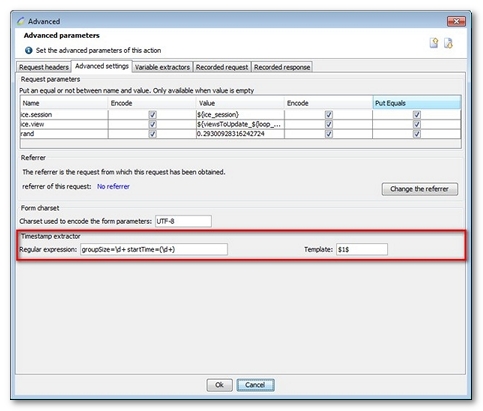Push messages response times
NeoLoad calculates response times for Push messages. A message response time is the time delay between the moment the server decides to update the client and the moment the client receives the update. Indeed, when using a Push Framework, the request response time (delay between sending the request and receiving the response) is fairly meaningless.
NeoLoad calculates the response time using a timestamp embedded in the server response. Depending on the Framework being used, the timestamp extraction needs to be configured manually.
- Warning: For the response times for Push messages to be coherent, the Load Generators and application server system clocks need to be synchronized.
AMF, RTMP and RTMPT frameworks
With AMF, RTMP and RTMPT, the timestamp in the server responses is in a standardized format. NeoLoad automatically extracts the timestamp attribute from the received message. No special configuration is required.
ICEfaces and Lightstreamer frameworks
With ICEfaces and Lightstreamer, the timestamp in the server responses is not supplied in a standardized format. In these cases, the application developer must integrate a mechanism in the application code in order to retrieve this information. Once the timestamp has been embedded in the server responses, you need to configure its extraction method in the Push request definition advanced parameters. To extract the timestamp, NeoLoad offers to define a regular expression for extraction and a value template to be able to isolate the timestamp.

Regular expression used to extract the value must contain parentheses around the parts to be extracted (valid example: timestamp="(\d+?)", invalid example: timestamp="\d+?"). See Regular expressions.
Template used to construct the value: This is an arbitrary string with specific elements that refer to the groups within the regular expression (a group is a dynamic portion of the regular expression, set between parentheses): $0$ refers to the entire text matching the expression, $1$ refers to group 1, $2$ refers to group 2, and so on. Using an illegal group identifier will prevent extraction; this can happen, for example, when parentheses are missing in the regular expression to be matched.